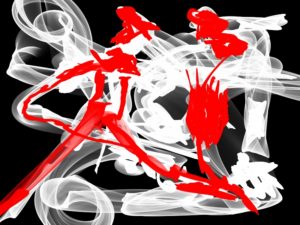
The girl at the lift scolded the old Chinese couple as they hobbled with difficulty slowly towards the stairs. When the tour bus is waiting such stragglers are “always a nuisance when operating to a tight schedule”, confided the guide.
A three to seven day tour of Hong Kong is still the most frequent way those living in rural China see the “outside world”. Many of those with hard earned savings are lured onto such tours by their cheapness – just 700 RMB (85 euros) – little realizing what is in store for them as they are herded from one tacky jewelry and souvenir dealer to the next and locked in underground rooms until they buy the overpriced goods forced upon them.
Hong Kong claims to be the international city of Asia, but the reality is that most of its population do not even speak Chinese, let alone English. Cantonese is supposed to be a dialect of mandarin, but is so different it can hardly be understood by the mainland Chinese traveller. Even taxi drivers are almost entirely monolingual and Hong Kong’s reputed international cuisine barely ranges outside the sickly sweet and bland Cantonese diet.
It is not yet 20 years since Hong Kong was handed back to China, yet many of the old symbols of British rule have entirely faded. Westerners are barely visible on the streets – except during corporate lunch breaks – and much of the vitality of the place is due to Filipino domestic workers enjoying their day off. The local population is largely evident by their frequent offhanded surliness and snobbery against any mandarin-speaking tourist that crosses their path.
In this seat of “free trade” and island of much prized “democracy” the authorities have responded to the complaints of local residents that baby milk was being bought up in large quantities by Chinese tourists because of health scares back home by banning its export – with heavy fines and even imprisonment for offenders. Yet the elected representatives have done little to curb the practice of luring Chinese villagers to the bright lights, taking the little money that they have and making them despise all that Hong Kong stands for.
What is happening to this city is not the straighforward westernization so evident in other Chinese cities such as Shanghai, but a new parochial materialism derived perhaps in reaction to the enlightened form of pragmatic communism of its massive neighbor. Its attractiveness remains its liberal tax laws and ease of setting up corporate entities, but walk outside the smart offices and designer malls of Admiralty and the waterfront tourist quarters and there before you the city is culturally imploding. Although Income tax is low by international standards property taxes are formidable and the shop assistant on 40 HK$ an hour serving you your pack of dried oversweetened noodles cannot ever dream of affording to move beyond their crumbling backstreet room that they share with five other prematurely aging exhausted individuals – all sleeping in shifts.
“And like the baseless fabric of this vision,
The cloud-capp’d tow’rs, the gorgeous palaces,
The solemn temples, the great globe itself,
Yea, all which it inherit, shall dissolve,
And, like this insubstantial pageant faded,
Leave not a rack behind.”
The Tempest Act 4,Scene 1